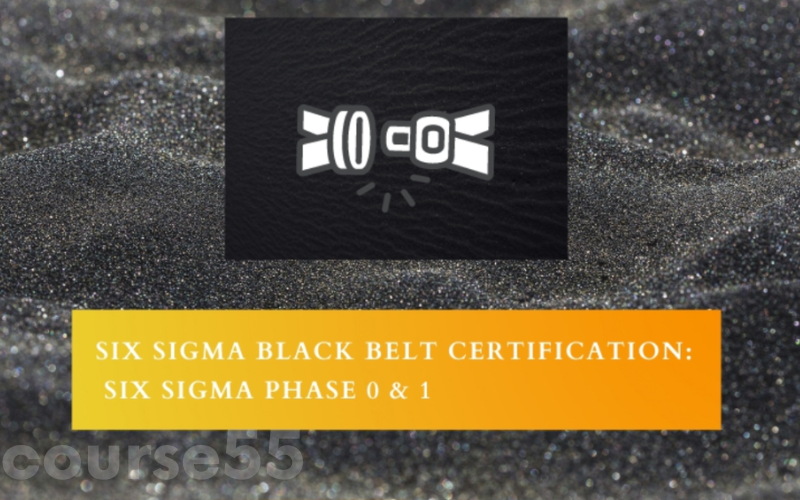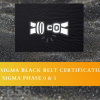-
×
 Scalers Method - Alex Micol
1 × $15.00
Scalers Method - Alex Micol
1 × $15.00
Six Sigma Black Belt Certification: Six Sigma Phase 0 & 1 By Stone River eLearning
$149.00 $23.00
SKU: C55.52153WBTg2T
Category: Technology
Tags: Phase 0 & 1, Six Sigma, Six Sigma Black Belt Certification, Stone River Elearning
Review of Six Sigma Black Belt Certification: Six Sigma Phase 0 & 1 by Stone River eLearning
Content Proof:
In the ever-evolving landscape of modern business, the importance of efficiency and quality cannot be overstated. Organizations continually seek to refine their processes, enhance productivity, and ultimately provide exceptional value to their customers. One methodology that has gained traction in this quest for excellence is Six Sigma, a systematic approach aimed at process improvement and organizational quality. Among the various avenues to master this methodology is the Six Sigma Black Belt certification, notably offered by Stone River eLearning. This certification package emphasizes two crucial phases Phase 0 (Pre-define) and Phase 1 (Define) laying the groundwork necessary for effective Six Sigma implementation.
Through this review, we will delve into the intricacies of these phases and their significance, providing insight into the curriculum offered, the tools taught, and the overall benefits that participants can expect from this certification.
Understanding the Importance of Six Sigma Methodologies
A Foundation in Process Improvement
Six Sigma is not just a buzzword in the business realm; it represents a mindset an approach that focuses on quality and excellence. Imagine climbing a mountain where the summit represents optimal organizational performance. Six Sigma serves as the guide, providing a well-trodden path filled with methodologies that have been tried and tested over years. At its core, the Six Sigma Black Belt certification by Stone River eLearning emphasizes the importance of continuous improvement a journey rather than a destination.
The Role of Phase 0
Phase 0, or the Pre-define phase, is where candidates build their initial understanding of Six Sigma principles. This phase is reminiscent of an architect sketching blueprints before erecting a building. Key components of this phase include:
- History of Continuous Improvement: Candidates explore the evolution of quality management theories, from the work of pioneers like W. Edwards Deming to the deployment of Lean methodologies.
- Value Generation: Understanding how to generate value is critical; participants learn how every step in a process should aim to add value rather than waste resources.
- Organizational Roles: Knowledge about the impact of team roles and support from stakeholders creates a robust infrastructure for Six Sigma initiatives.
Through this foundational phase, learners grasp change management strategies, which are vital for preparing themselves and their organizations for the transformative journey that lies ahead.
Diving Deep into Phase 1: Defining the Path Forward
Understanding the Define Stage of DMAIC
Having laid the groundwork, candidates transition into Phase 1, where the focus shifts to the Define stage of the DMAIC (Define, Measure, Analyze, Improve, Control) framework. Here, the learning experience transforms from theoretical knowledge to practical application akin to a musician learning theory before playing an instrument.
Key Tools and Techniques
In the Define phase, participants learn to elucidate the Voice of the Customer (VOC) and develop critical project management skills through various tools. This includes:
- Project Charters: Establishing the project’s purpose, objectives, and scope can be compared to setting the sails before embarking on a voyage.
- Critical-to-Quality (CTQ) Requirements: Understanding these requirements is crucial for ensuring that the project remains aligned with customer expectations and organizational goals.
- Subjective and Quantitative Analysis: These analytical techniques help to distill important data, leading to informed decision-making and effective problem-solving.
Practical Applications
Moreover, practical tools like affinity diagrams and stakeholder impact assessments introduce candidates to real-world challenges often faced in project management. This hands-on experience equips participants with the confidence to navigate the complexities of team dynamics and the pressures of project execution.
The Industry Recognition and Career Advancement
Certification Worth Its Weight in Gold
The significance of obtaining the Six Sigma Black Belt certification transcends personal development. Many industries recognize this certification as a standard of quality, reflecting a candidate’s ability to lead and manage improvement projects effectively. Studies indicate that individuals with these qualifications can expect a substantial increase in their earning potential. For instance, it’s noted that professionals with Six Sigma training can earn, on average, $21,181 more annually than their non-certified counterparts.
Market Demand for Six Sigma Skills
With businesses striving to maintain a competitive edge, Six Sigma skills are in high demand across various sectors, including manufacturing, healthcare, finance, and IT. This certification not only enhances one’s technical skills but also makes the individual more attractive to potential employers. It’s akin to donning a cape of credibility that stands out in a crowded job market.
Summary of Course Content and Structure
Course Structure Overview
| Phase | Key Topics Covered | Tools and Techniques |
| Phase 0 | – History of Continuous Improvement | – Change Management Strategies |
| – Value Generation | – Organizational Roles | |
| – Business Process Analysis | ||
| Phase 1 | – Voice of the Customer (VOC) | – Project Charters |
| – Critical-to-Quality (CTQ) Requirements | – Subjective and Quantitative Analysis | |
| – Practical tools like Affinity Diagrams | – Stakeholder Impact Assessments |
Final Thoughts on the Certification
The Six Sigma Black Belt certification offered by Stone River eLearning is undeniably an investment in one’s professional future. This certification not only equips participants with a solid foundation in Six Sigma’s initial phases but also prepares individuals to provoke meaningful change within their organizations. With practical applications paired with sound theoretical underpinnings, candidates emerge from the program not just as learners, but as leaders capable of driving innovation and improving processes.
Conclusion
In an era where every business, regardless of industry, is pressured to optimize its processes and enhance quality, the Six Sigma Black Belt certification from Stone River eLearning stands out as a vital educational opportunity. Through its focus on Phase 0 and Phase 1, participants are armed with the knowledge, tools, and confidence to take charge of process improvement initiatives. For anyone aspiring to lead in this space, this certification is a gateway to enriched knowledge, elevated skills, and exceptional career prospects. Embracing Six Sigma isn’t merely about certification; it’s about fostering a culture that prioritizes quality and continuous improvement a journey worth embarking on.
Frequently Asked Questions:
Business Model Innovation: We use a group buying strategy that enables participants to share costs and access popular courses at lower prices. This approach helps individuals with limited financial resources, although it may raise concerns among content creators regarding distribution methods.
Legal Considerations: Our operations navigate complex legal issues. While we do not have explicit permission from course creators to resell their content, there are no specific resale restrictions mentioned at the time of purchase. This lack of clarity allows us to offer affordable educational resources.
Quality Control: We guarantee that all course materials provided are identical to those offered directly by the creators. However, please note that we are not official providers. As a result, our services do not include:
– Live coaching calls or sessions with the course author
– Access to exclusive author-controlled groups or portals
– Membership in private forums
– Direct email support from the author or their team
Our goal is to make education more accessible by offering these courses independently, without the additional premium services available through official channels. We appreciate your understanding of our unique approach.
Be the first to review “Six Sigma Black Belt Certification: Six Sigma Phase 0 & 1 By Stone River eLearning” Cancel reply
You must be logged in to post a review.


















Reviews
There are no reviews yet.